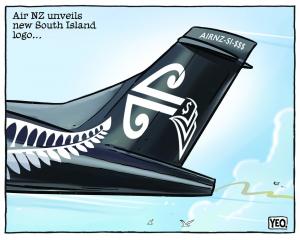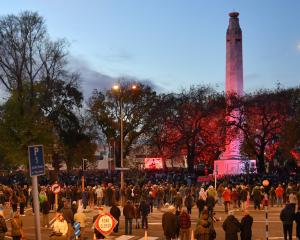Unicef celebrated 25 years of children's rights late last year with Just Play Sports Days.
But nearly nine months ago, in Nigeria, 300 teenage girls in Nigeria were kidnapped by an Islamist group Boko Haram. Those girls are unlikely to be celebrating play sports days any time soon.
The finger-pointing between the Nigerian and United States Governments has escalated, stoking distrust between the military of the two countries.
Nigeria's ambassador to the US has accused the Obama administration of failing to support the fight against Boko Haram, prompting the State Department to fire back with condemnations of the Nigerian military's dismal human rights records.
In the meantime, not one of the kidnapped girls has been found. Many are believed to have been married off to Boko Haram fighters, who in the past six months have seized hundreds more civilians, including children, planted bombs in Nigerian cities and captured entire towns.
Last month, at least 141 people, including 132 children, were killed in an attack by Pakistani Taliban fighters on a military-run school in Peshawar in Pakistan's northwest.
Explosions and gunfire rang out as seven armed men attacked the Army Public School in one of the bloodiest attacks in Pakistan's history. Eye witnesses said most of the younger pupils escaped the school, but the senior students were not so lucky.
The suicide bombers had been given orders to allow the youngest pupils to leave but to kill the rest. The attack was in retaliation for an ongoing Pakistan Army operation against the Pakistani Taliban and its allies in the North Waziristan tribal area.
Meanwhile, children as young as 6 can be seen on videos released recently firing automatic weapons in training camps run by the Islamic State (IS).
The footage has small children sitting reading from the Koran before showing a youngster, wearing a ski mask, firing an automatic weapon, which he struggles to control as he fires. It then shows another boy assembling a weapon, while other children look on in the background.
One boy, who managed to flee from one of the training camps, told news media he was just 13 when IS tried to recruit him. He says his father tried to stop him but militias threatened to behead him if he did not let his son go.
Syrian children are among the casualties as the civil war continues unabated. Teenagers from Australia and the United Kingdom have tried, sometimes successfully, to travel to Syria to fight. It is a tragic trend.
In Gaza, children are being killed in rocket fire from Israel, in retaliation for attacks by the Palestinians. Najia Warshaga became a symbol of the Gaza conflict - a picture of an injured girl, her weeping face smeared with blood. The image was taken by the Associated Press photographer Khalil Hamra and was shared on social media around the world.
Last week, a 2-year-old boy accidentally shot his mother dead after he took a gun from a compartment in her purse.
The legacy the boy will live with will not be easy. But neither will life be any easier for the kidnapped Nigerian girls, the families of the murdered Pakistani schoolboys, or the families of the children dying in Syria and Gaza.
We must not forget the ongoing use of child labour around the world to produce luxury items selling for hundreds, perhaps thousands of dollars, while the children are paid a pittance and live on scraps.
As the year unfolds, the future looks bleak for children around the world. Chances are children in New Zealand will die needlessly from accidents or violence.
The need to protect the young of this country, and around the world, must become a priority. The heartbreaking scenes of children being buried by their parents needs to be front and centre of our consciousness.
Instead of governments arguing about who should or should not be doing something to save the children, politicians need to put aside their greater issues and focus on preventing the killing of the young.












